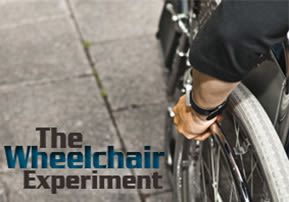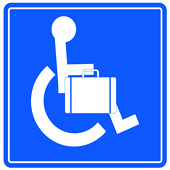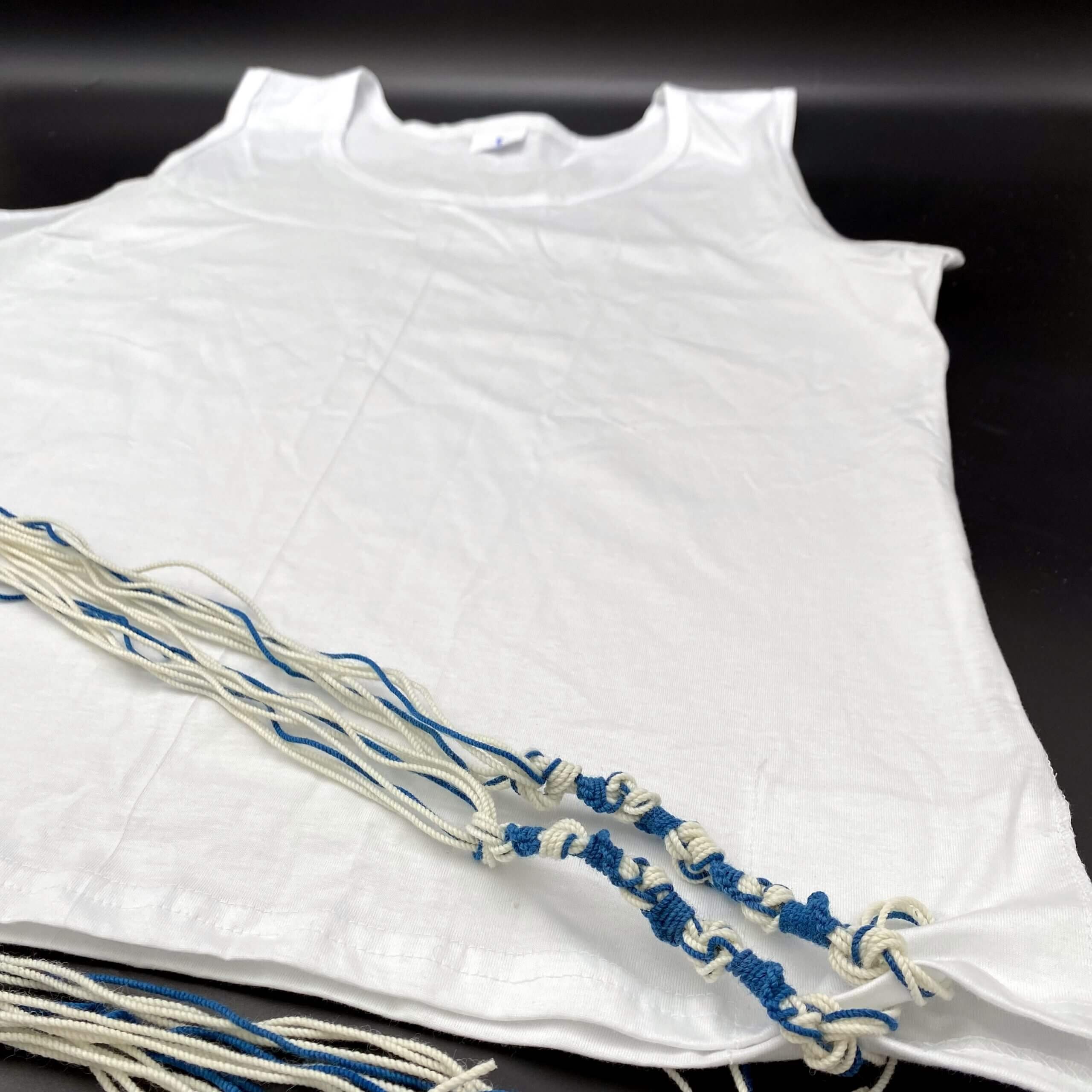
The Wheelchair Experiment – Part 2
Life’s simplest tasks – such as opening a refrigerator door – become a major project for someone who is confined to a wheelchair. Do we really appreciate life’s best blessings?

Continued from Bargain-Basement Salvation, Part 1
For the next part of my experiment – walking – I decided to use a 'wheelchair' (one of my kitchen chairs) in place of my legs.
The revelation this time was not as striking as the first time but I do assure you that by the time I had completed the experiment I was grimly aware of how difficult life is if one is not to be able to walk.
 My first thought was that I need to cook dinner and tidy the kitchen. (We will presume that the kitchen had been remodeled and the kitchen counters built at a lower level to take into account the reduced height of a wheelchair). I laboriously dragged my chair across the floor, squeaking with protest on the kitchen tiles, to the fleishieg (meat) counter.
My first thought was that I need to cook dinner and tidy the kitchen. (We will presume that the kitchen had been remodeled and the kitchen counters built at a lower level to take into account the reduced height of a wheelchair). I laboriously dragged my chair across the floor, squeaking with protest on the kitchen tiles, to the fleishieg (meat) counter. But then I suddenly remembered that I needed vegetables from the fridge, so back I dragged myself across the kitchen. Before I even opened the fridge door I was faced with the difficulty of placing the 'wheelchair' far enough for there to be room for the door to swing open, but not too far so that I wouldn't even be able to reach the door. I worked it out but even then it had to be done in two stages.
I finally got the door open and maneuvered the 'wheelchair' right up to the fridge, but the effort of bending down to take the vegetables out of the bottom drawer was far greater than if I had just been standing and bending flexibly from my knees and I nearly fell out of the chair too!
Undaunted, I dragged myself back across the kitchen with the vegetables in my lap and started preparing my dinner. The effort of moving backwards and forwards each time I needed something from a drawer, maneuvering to be able to open a cupboard door, or bending down to take something out of the cupboard was so great that within 15 minutes I was worn out.
I sat there and considered what happens if one needs to go to the bathroom? How does one maneuver oneself from the chair to the toilet seat? And what about taking a bath, and getting in and out of bed, and dressing oneself? What about tidying up our homes, and leaving our homes to go shopping or travel somewhere? The list is endless……. and my head began to ache.
I can tell you that this experiment left me with an extremely heightened awareness of what our effortless walking, and running backwards and forwards just in our own homes really means. It was extremely clearly brought home to me what a tremendous gift this too is from Hashem ……. So there you have the morning blessing of hamechin mitzad’e gaver 'who prepares the footsteps of man'. The wording of the blessing is very precise (as are all the blessings) because this refers not just to walking but all the components necessary to achieve this. Included in the list is good blood circulation to the legs, flexibility of the spine, fluid joints so that the legs can bend properly, and a thousand and one other details, all of which need to synchronize perfectly so that we can then ……. walk.
An added bonus to all this is that I'm now beginning to understand how much is packed into those few morning blessings.
When I began the final part of my experiment I wasn't anymore trying to heighten my awareness of gratitude to Hashem; I felt I already knew enough (little did I realize how mistaken I was). In my naiveté I thought that I only want to do this so that I can fully understand what the lack of flexibility in one's hands means. Oy vey! What can I say! Suffice it to say that this experiment proved to be just as earth-shattering as the other two.
In order to limit my flexibility I put a pair of rubber gloves on my closed hands, leaving only my index fingers sticking out free for use; in this way I attempted to prepare dinner.
Before I even started I first had to consider how I was going to manage each activity; no more effortless taking something out of the cupboard or putting it away, washing dishes or cutting vegetables……. Added to that everything kept on slipping out of my grasp and rolling away or falling down unless I held on to it for dear life (and in the process I broke two plates). Closing my buttons and tying my apron strings was an exercise in patience and ingenuity that took roughly 20 times longer than ''normal'', and the effort to close the poppers on my housecoat nearly caused me to pop (with exhaustion).
Once again I allowed myself to think how does one dress oneself, or open or close a baby's buggy (with great difficulty), deal with answering the telephone and writing down a message at the same time (actually that was one of the 'easier' things)……. and so on ……..
After that I was left feeling very low Am I really so unappreciative of all the kindnesses Hashem does for me? Do I really even begin to appreciate all that He does for me day in, day out? (NOT ONE IOTA!!!)
The lessons I learnt will not so easily be forgotten, and hopefully from now on my tefillos (prayers) will be said with far greater kavanoh (intent) than before but even so with time the intensity and the vividness of the experiences will fade. As I really didn't want that to happen I went into the Rov to discuss the matter with him, and this is what he said.
Friday night lecht bentschen (candle-lighting time) is an עת רצון – an optimal time for all our requests to Hashem; it has been the custom throughout the ages for women to daven to Hashem for all they need (in their own words) immediately after they have lit the candles.
The Rov felt it would be appropriate if, before I started on my (long) list of requests that I first thank Hashem for what He has already given me, and he explained this with a parable.
Every father loves his children and is always willing to give them whatever he can. However, if the children continuously 'nag' for more and more, without ever showing gratitude for what they have already received, the father might get upset at his children's lack of gratefulness. If children do show gratitude this motivates their father to continue fulfilling his children's requests to the limit of (and even beyond) his capabilities.
The same is with Hashem – He does not 'owe' us anything but He is our all-loving Father who wants nothing more than to shower us, His children, with all the good in the world; if we thank Him for all that He gives us He is 'motivated' to continue giving.
The Rov explained that if I thank Hashem for what He has given me I will constantly be reminding myself of what He has done for me and in this way the lessons I have (hopefully) learned will remain fresh in my mind.
The Rov told me not just to 'list' what I have received, but as I think of each point I should stop and envisage in my mind what it would be like if it was lacking. By doing this I would really be grateful to Hashem and truly appreciate what I have received – and at the same time I would also be fulfilling the law of serving Hashem happily.
I have been doing this for quite a while now, and I can tell you that the Rov's advice works beautifully. I am so grateful for ……. my vision, my health and flexibility, the ability to think clearly and logically, my …….. (the list is endless, and at this age not to be taken for granted at all!)
THANK YOU HASHEM
FOR ALL THAT YOU DO FOR ME AND GIVE ME!













Tell us what you think!
Thank you for your comment!
It will be published after approval by the Editor.